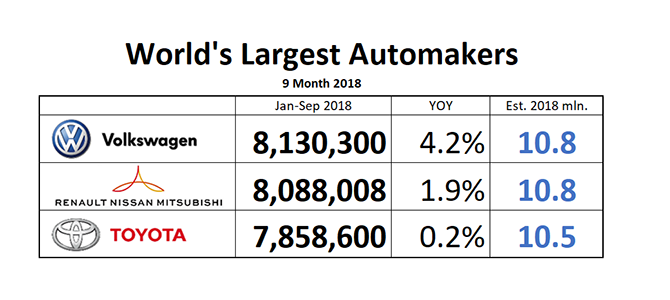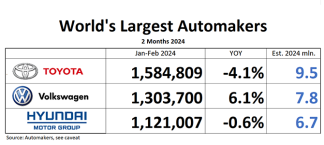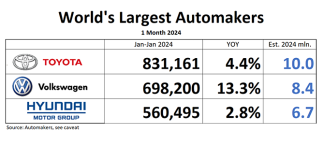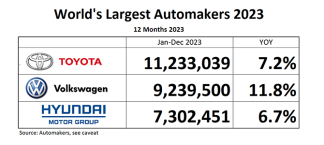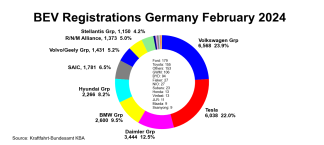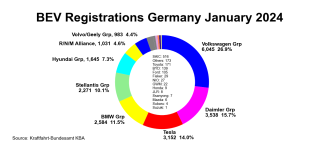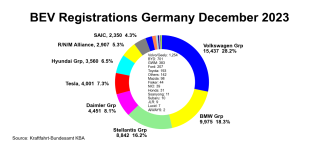Global OEMs competing for the title of biggest global OEM ended the September lap without a change in position. The Volkswagen Group leads the pack by a hair-thin margin, with the Renault-Nissan-Mitsubishi Alliance. breathing down its neck. Usually, the race would be long decided this time of the year. This year, it remains a cliff-hanger.
With its output basically flat, Toyota Group keeps doing its own thing in number 3. Toyota has refused to add capacity fearing a cyclic downturn, which appears to be imminent.
WLTP was predicted to shake-up the field, but so far, it did not. All over Europe, cars were registered (and not necessarily sold) en masse in Europe to beat a September 1 deadline when more stringent emissions regulations came in effect in the EU. This made EU passenger car registrations (but not necessarily sales) crater by 23.5% in September in the EU. However, this affected all OEMs in the EU, more or less.
According to the numbers reported by all OEMs, number one Volkswagen is still up 4.2% year-on-year, despite a WLTP-induced -18.1% month-on-month knock-down in September. A close 42,000 units behind is the Franco-Japanese Alliance. What is not aligned in the Alliance is their reporting methodology. As a matter of fact, it just went from bad to worse. Renault steadfastly refused to break out production, forcing us to use “deliveries” in lieu. And now, Renault even started to withhold the separate delivery number.
Minasama, Mesdames et Messieurs: With a race that close, every unit counts. This race is decided by production, and it is not helpful at all if Renault is doing its own thing in an Alliance that allegedly is all about synergies. Kudos to all Japanese OEMs for reporting sales and production separately, as intended by God and the global umbrella organization OICA. Boo-hiss to VW for reporting only very elastic “deliveries.”
Note: This analysis attempts to track production, not sales, because this is how the world automaker umbrella organization OICA ranks automakers.
Due to the different methodologies of their measurement, “sales” numbers have proven to be unreliable, and prone to ‘sales reporting abuses,” as recent scandals in the U.S., along with rampant “self-registrations” in the EU have shown.
At the same time, data reported by automakers are becoming increasingly hard to compare.
Toyota reports production and sales. Volkswagen reports “deliveries” to wholesale – which is, at least for this exercise, close enough to production. The Alliance numbers used to be a blend of production data reported by Nissan and Mitsubishi, and deliveries reported by Renault. As of September, Renault started to report sales only, forcing us to use those. Not good at all.
